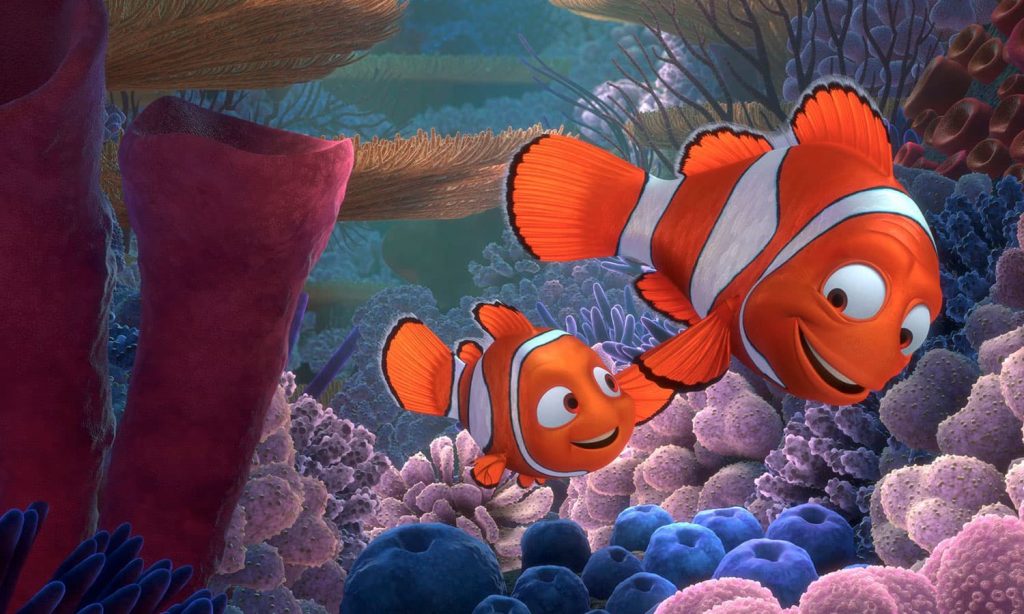If you didn’t have early aspirations to be an astronaut, teacher, sportsperson or firefighter, then you likely grew up wanting to be a marine biologist.
Huge over-exaggeration, we know, but every time the question: “What did you want to be when you grew up?” arises, there always seems to be at least a few people in the room with the same answer.
And when we think about it, we can’t really pinpoint why. It’s not exactly a common job or one where family influence might factor in. Kids don’t go around meeting marine biologists every day of the week, and it’s likely they may not even be able explain what someone in that profession does in their day-to-day. So what is about this elusive role in science that has so many kids latching on?
According to child and family therapist, Ray Medhora, the influence can come from a range of media, be it films and television, or very early education.
“Children want to be in professions that inspire them and fill them with curiosity and wonderment. This can be different for each child depending on their disposition or interests, the era in which they are growing within, their developmental age and also their personality style.
“Children generally love the idea of working in positions of fame like acting or professional sport, but there are many kids who dream of becoming scientists, doctors or archeologists. “Firefighters, police officer and other frontline workers appear confident while also helping others out, and so are common answers with kids, also.”
So where do marine biologists fit into this? Well, according to Medhora, the appeal of marine biology lies in a combined interest in animals and a fascination of the ocean.
“Roles like marine biologists are exciting to kids because working with animals is appealing, as is working in the deep blue water. Many kids dream of the vast unknown and believe marine biology could be a way to engage in both of those simultaneously.
“In addition, marine biology combines the notion of exploration and curiosity with helping beautiful creatures and being a part of something bigger than yourself.”
“Marine biologists have the added personality traits of requiring intelligence, being caring and being an explorer.”
Confession: I have a vested interest in this story because I am, in fact, one of those kids who gave ‘marine biologist’ as the answer to questions about aspirations. But with a born-fear of deep water, I had no intention of ever turning this faux dream into a reality. Honestly, I used to tell people I wanted to be a marine biologist for no other reason than it sounded clever and made me look smart.
Thankfully for me, Medhora explains this is a common response from kids. “Marine biology does sound clever, and it does require intelligence to achieve.
“As a child, projecting our own potential profession reflects how we want to be seen as adults in the world, and maybe your values were of intelligence, curiosity and being a part of something greater.”
Glad to hear my need to be seen as intelligent among my peers and adults was, in fact, normal. But I’m still wondering just why I, and so many other kids in my cohort, gravitated towards marine biology over other science-y professions with animals like a zookeeper or paleontologist.
Was our generation exposed to a particular film that explored the deep blue intimately? Was there a Healthy Harold session on marine biology? Was it that scene from Spy Kids where Carmen and Juni travel in the underwater pod? The underwater episode of The Magic School Bus? According to Medhora, there were plenty of influences just like these around the time we grew up.
“Kids absorb so much from the media they consume. Children may have learned about marine biology, or how humans interact with sea life, from Disney movies such as Moana, Finding Nemo or The Little Mermaid. I even know of a kids movie where Barbie and her friends actually save dolphins from an actual marine biology institute!
“Each of these movies or shows add value and interest in these roles and stimulate kids’ curiosity in marine life and working alongside sea animals.
“And it’s important to note the narrative of these movies does not necessarily need to be about marine biology in order for the child to begin exploring that style of profession. That comes with later education.”
Yes, according to Medhora, our exposure to certain elements of a job can feel appealing as kids from an age as early as four or five. We latch on to these ideas and passions, and when we finally discover there are jobs that exist in the world that cater to these things, we level up.
“We begin to explore animals in different environments and learn that there are jobs that are required in each of these habitats. For example, kids at this age are learning that there are zookeepers who help animals at the zoo, just as there are firemen who put out bushfires and save our wildlife.
“We understand the particulars, such as the science and caring element of marine biology slightly later — perhaps in middle childhood around the age of eight or 10. At this point, we start to investigating different professions with slightly more depth and understanding of the impact this profession has on the wider world, while considering our place in that (future) world.”
Read more stories from TheLatch— and follow us on Facebook.

